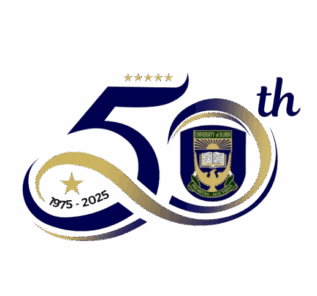By Tajudeen Babamale and Bashir Dawodu
A former Deputy Vice Chancellor (Academic) of the University of Ilorin and renowned scholar of Applied Linguistics, Prof. Raheem Adebayo Lawal, has said that translation and interpretation arts can play pivotal roles in achieving the 17 Sustainable Development Goals (SDGs) adopted by all United Nations member-states.
Prof. Lawal made this advocacy last Thursday (November 6, 2025) while delivering a keynote address, titled “Leveraging Translation for National Development in the 21st Century: Strategies, Challenges and Prospects” at the 21st Annual Conference of the Nigerian Institute of Translators and Interpreters (NITI) held at the University Auditorium.
He described translation as a vital tool for advancing education, governance, healthcare, agriculture, commerce, and religion, stressing that it enables nations to build bridges across linguistic and cultural divides.
Linking his argument to the UN’s SDGs, Prof. Lawal identified Goal 4 (Quality Education) as central to achieving all others, explaining that literacy, promoted through translation into indigenous languages, remains a cornerstone of national progress.
While asserting that translation fosters inclusivity, expands access to education, supports economic growth, facilitates effective governance, and preserves cultural heritage, the don cautioned against the risks of mistranslation, distranslation, and untranslatability, which, he said, could distort meaning or undermine communication.
Prof. Lawal identified untranslatability as the greatest challenge in translation, describing it as the inability to convey the exact meaning of certain words, phrases, or expressions in another language. Using examples from Yoruba, such as àmọ̀là, gbègìrì, àkàrà, and móìn-móìn, he referred to these linguistic gaps as “lexical lacunae”.
The renowned academic and pioneer Vice Chancellor of the University of Offa noted that personal names are particularly difficult to translate because they are deeply embedded in cultural and cosmological worldviews.
Citing his own middle name, Adébáyọ̀, he argued that literal or idiomatic translations often fail to capture its full cultural meaning, and recommended that names be preserved in their original linguistic form to maintain cultural and linguistic integrity.
On education, Prof. Lawal stated that instruction in the mother tongue enhances comprehension, retention, and academic success, adding that translation across exogenous and indigenous languages increases access, enrolment, and performance while preserving cultural heritage and promoting multicultural education.
He also commended the University of Ilorin, through its Centre for Supportive Services for the Deaf, for facilitating access to quality education for scores of hearing-impaired students who have graduated from various programmes over the past three decades.
While discussing the healthcare sector, Prof. Lawal mentioned the role of translation in bridging communication gaps between medical professionals and patients. He explained that translation improves patient understanding, reduces errors, and enhances health literacy.
To address challenges such as cultural barriers and shortages of interpreters, Prof. Lawal advocated for cultural competence training for healthcare providers, reliable translation software, and community health outreach initiatives.
While declaring the conference open, the Vice Chancellor, Prof. Wahab Olasupo Egbewole, SAN, who was represented by the Deputy Vice Chancellor (Academic), Prof. Moji Taibat Bakare-Odunola, explained the critical importance of translation and effective communication in addressing global and national challenges.
The Vice Chancellor said the theme of the conference could not have come at a better time, given the increasing need for accurate information dissemination and effective communication in solving the world’s pressing problems. He noted that in a world faced with complex issues such as conflict, climate change, and cultural misunderstanding, the ability to communicate across linguistic and cultural boundaries has become more crucial than ever.
Prof. Egbewole commended NITI for choosing the University of Ilorin as host and for its continued commitment to promoting professional excellence in translation and interpretation. He also reaffirmed the University’s readiness to support initiatives that foster knowledge exchange, global understanding, and sustainable development.
In his welcome address, the National President of NITI, Dr Aliy Abdulwahid Adebisi, expressed appreciation to the Vice-Chancellor of the University of Ilorin for approving the hosting of the conference.
Dr Adebisi, who is also the Acting Director of the Institute of Translation Arts, University of Ilorin, said that within a year of his leadership, the Institute had achieved notable milestones, including the establishment of a new scholarly journal dedicated to Translation Studies, the Ilorin Journal of Translation Studies. The first two volumes of the journal were formally presented during the conference.
Some of the highlights of the conference were the conferment of the Honorary Fellowship of the Institute on the Vice Chancellor in recognition of his remarkable contributions to the growth of translation in Nigeria. Additionally, the Secretary-General/Registrar of NITI, Mrs Adejoke Yewande Oluwajobi, inducted two new fellows and sixty-four new members into the fold of the Association.
